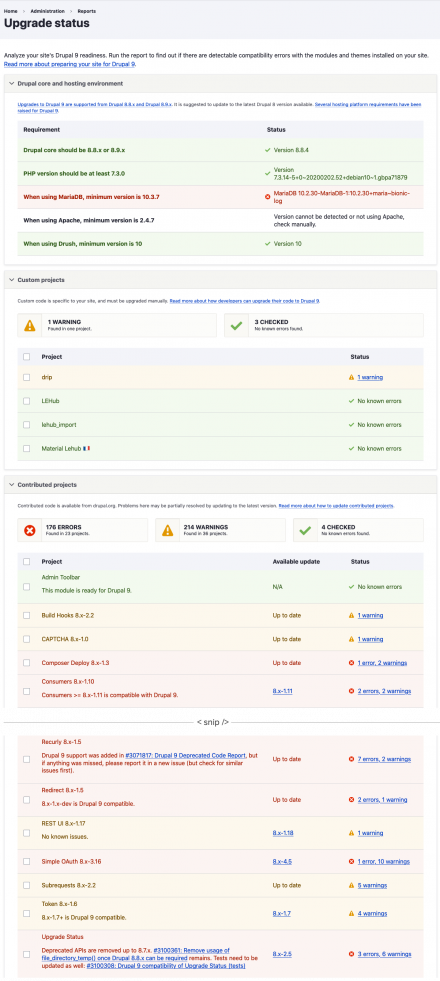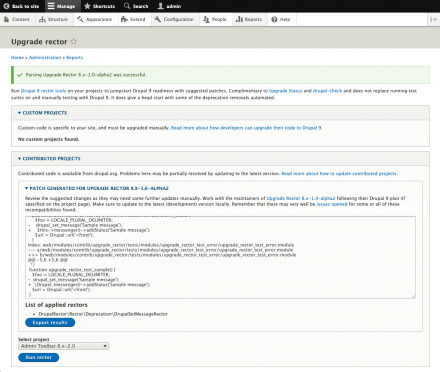
We’re excited to hear your project.
Let’s collaborate!

Is it (still) too early to give Drupal 9 a try? To start fresh and build a website from scratch in the latest version of Drupal?
Should you stick to Drupal 8 for... a little longer and upgrade later?
How difficult will it be for you to find compatible Drupal 9 modules (and themes)?
Let's find out:
What are the biggest benefits of Drupal 9 over Drupal 8?
Why would you choose precisely this version of Drupal to build your new website with?
And particularly because there will be no more major re-builds (aka "major pains to upgrade").
Instead, a set of new features gets released every 6 months, including new improvements and additions to be incorporated seamlessly into your Drupal 9 build.
So, stay assured: you won't be having a hard time finding compatible modules for your new Drupal 9 website.
Many of the modules on Drupal.org have been, are being made, and will be made compatible with Drupal 9. There's a collective effort coming from the Drupal community in this direction.
And where do you add that the process is pretty straightforward:
Same code, but without the deprecated APIs.
For there have been changes under Drupal 9's hood. Changes in coding with a direct impact on some modules and APIs.
Which means that some modules have turned from Drupal core modules to... outside dependencies:
Luckily, you have at least 2 helpful tools at hand that you can use to:
Why use it?
Because it offers you a view of all that has been changed in Drupal.

Source: Drupal.org
You have links to the modules' pages there, that you can access to review those changes.
The great thing about this tool is that it provides you with automated code fix suggestions to help you make your target modules Drupal 9 compatible.
Source: Drupal.org
Now, there are a few Drupal modules that didn't get the chance to grow into Drupal 9 modules.
And I'm talking here about:
As you can see, in both cases you get to use better alternatives. So, it's just a matter of favoring more powerful solutions.
Good to know! Expect other modules and themes (i.e. the Classy theme, the Stable theme) to get deprecated and removed by the time we reach Drupal 10.
What if you need more than the out-of-the-box Drupal 9 modules to build your new website?
What if you depend on particular contributed modules? Or on... many contributed modules?
Well, then things get a little more challenging...
Because many of the contributed Drupal modules still need to be made compatible with Drupal 9. They need some time to catch up with the new version of Drupal.
Take for instance: updating tests to PHPUnit or updating deprecated API usages.
Now, what you can do is give a helping hand to accelerate the updating of these modules.
And the steps/best practices to follow are pretty simple, as suggested in this guide on Drupal.org :
Tip! Ask that contributed module's maintainer how he/she would like to address the issues you're signaling.
Because the guidelines available for Drupal core aren't always relevant for addressing contributed module issues, as well.
The END!
Now, assuming that:
... how do you get it up and running in?
We're here to help. Just drop us a line!
We've been building Drupal websites since... Drupal 5.
Image by Siggy Nowak from Pixabay

We’re excited to hear your project.
Let’s collaborate!